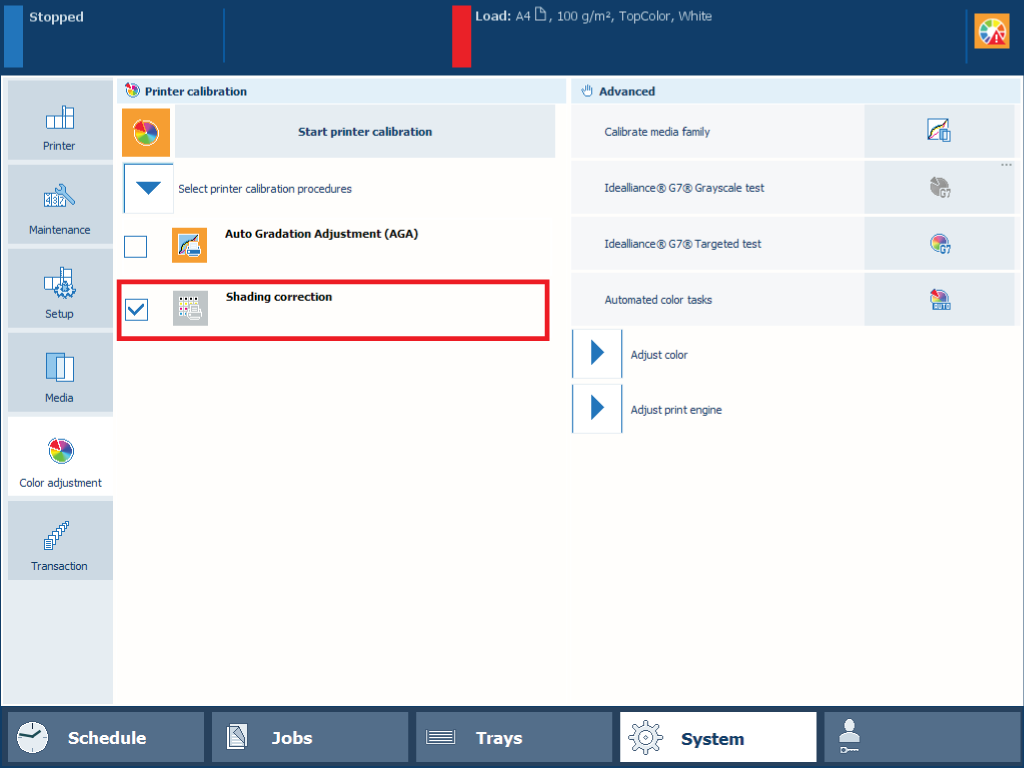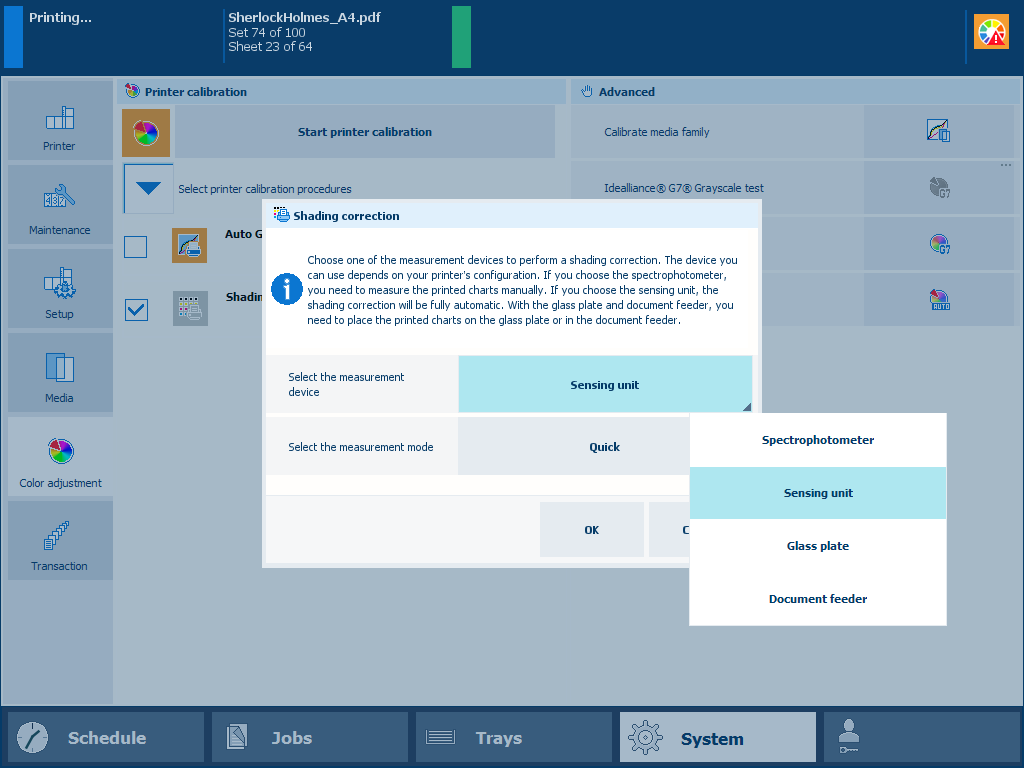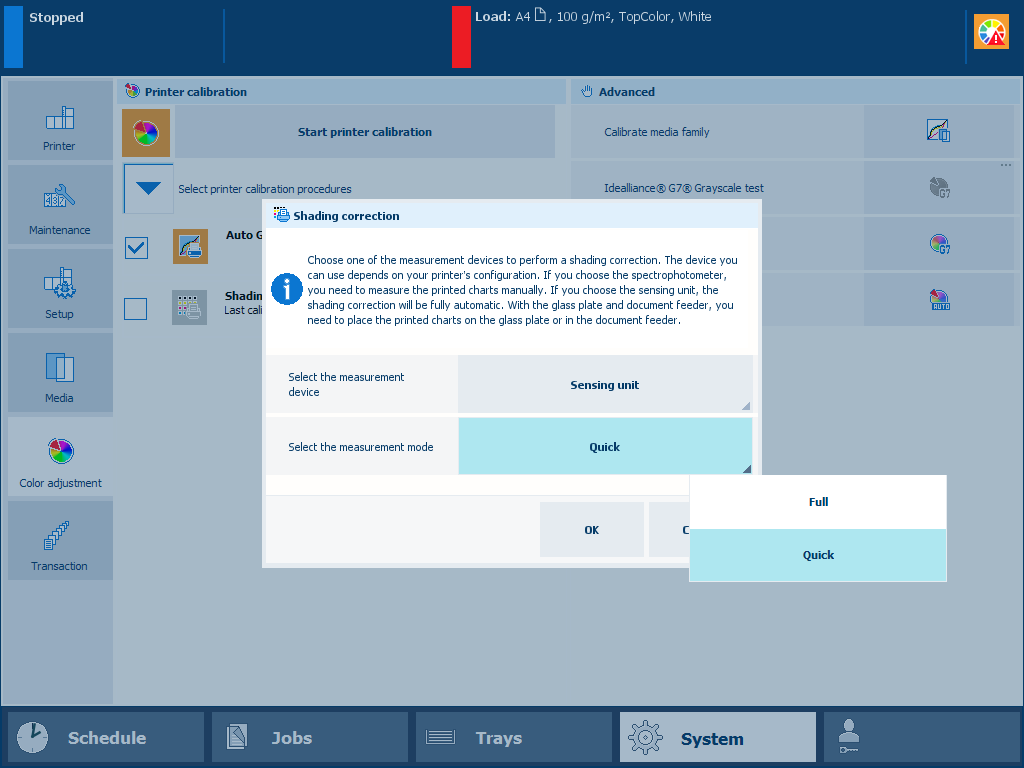

In most cases, an automatic gradation adjustment is sufficient to deliver the required color quality. However, in the following situations it is necessary to perform also the shading correction:
After the installation of the print system.
When the printed output shows uneven color densities in the color panes.
When your service organization replaces system parts.
If different supported calibration media are loaded and assigned, the correction procedure will select the media with the largest size. Both coated and uncoated media are suitable for this procedure.
 Shading correction
Shading correctioni1Pro3 spectrophotometer (i1Pro2 also supported).
Sensing unit (optional)
Glass plate (optional)
Automatic document feeder (optional)
Calibrate the printer.
You must always perform a printer calibration before you continue with this procedure.
Connect the i1Pro3 spectrophotometer to the USB port of the control panel.
Touch .
Select [Shading correction].
Touch [Start printer calibration].
Select the measurement device.
 Shading correction measurement device
Shading correction measurement deviceSelect the measurement mode: quick or full.
 Shading correction measurement mode
Shading correction measurement modeIf you use the [Quick] mode,
the shading correction procedure with the sensing unit takes two minutes.
the shading correction procedure with the glass plate or automatic document feeder involves printing and scanning of one chart.
If you use the [Full] mode,
the shading correction procedure with the sensing unit takes four minutes.
the shading correction procedure with the glass plate or automatic document feeder involves printing and scanning of two charts.
Touch [OK]
Follow the instructions on the control panel.
When the shading correction produces a "density not within required range" error, perform a correction procedure for this error.